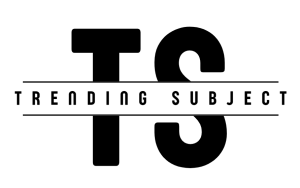At a raucous Monday night town hall in Los Angeles, Rep. Laura Friedman (D-CA) pulled back the curtain on what conservatives have long suspected but rarely heard admitted outright: the Democratic Party has been orchestrating a quiet, weekly campaign of coordinated legal warfare against President Donald Trump’s administration—and it’s happening in lockstep with state attorneys general.
Friedman, a freshman Democrat, laid it bare. “Every single week we have a litigation working group,” she said, addressing an energized, left-leaning crowd. “There’s maybe 75 members of the House who sit down every single week with the AGs to talk about legal strategy. This is all going on behind the scenes. It is non-stop.”
This revelation provides on-the-record confirmation of a strategic legal front that has, until now, operated largely in the shadows. Known informally among conservatives as “lawfare”—a tactic involving the weaponization of legal systems to obstruct and overwhelm—the practice has become a central tool of Democratic resistance. Friedman’s admission affirms that it’s not just happening, it’s institutionalized.
According to Friedman, the strategy isn’t confined to the courtroom. It extends into media and public narrative shaping. “We’re non-stop being on social media as much as we can without being throttled,” she added, citing analytics and shadowbanning concerns. The goal is clear: amplify legal efforts and drive the message home to voters.
The town hall itself showcased the pressure Democrats are feeling from the activist base. With trans pride flags in the audience and calls for more aggressive action, Friedman attempted to reassure constituents that she’s pushing back. She cited “wins” in the courts as evidence of progress and referenced visits from progressive powerhouses like Sen. Bernie Sanders and Rep. Alexandria Ocasio-Cortez to bolster her credibility.
Still, the room was hot with frustration. “I know you’re mad at me,” Friedman said. “But you’re even madder at this administration… I’m scared too. I’m angry too.”
In response to this legal onslaught, the Trump administration has gone on offense. Executive authority is now being used as a countermeasure to what officials view as a coordinated legal and media-driven obstruction effort. The invocation of the Alien Enemies Act to deport certain Venezuelan immigrants—many with suspected gang ties—has already triggered federal court battles, with judges in Colorado, New York, and Texas issuing temporary holds.
Additionally, law firms deeply entrenched in Democrat legal efforts, including Perkins Coie and WilmerHale, are now under scrutiny. These firms, some of which have long offered pro bono support to left-wing causes, are pushing back against executive pressure, arguing that Trump’s actions threaten the autonomy of the legal profession.
Republicans, meanwhile, are demanding accountability on multiple fronts. Groups like ActBlue and Indivisible, central to Democratic grassroots fundraising and organizing, are now facing calls for federal probes. Allegations include possible campaign finance violations and coordination that could breach political advocacy boundaries.
On Capitol Hill, House Republicans have signaled that legal countermeasures are on the table. And Trump’s legal team, bolstered by DOJ officials aligned with the administration’s strategic goals, is preparing to challenge the rising tide of litigation designed to paralyze his agenda.








